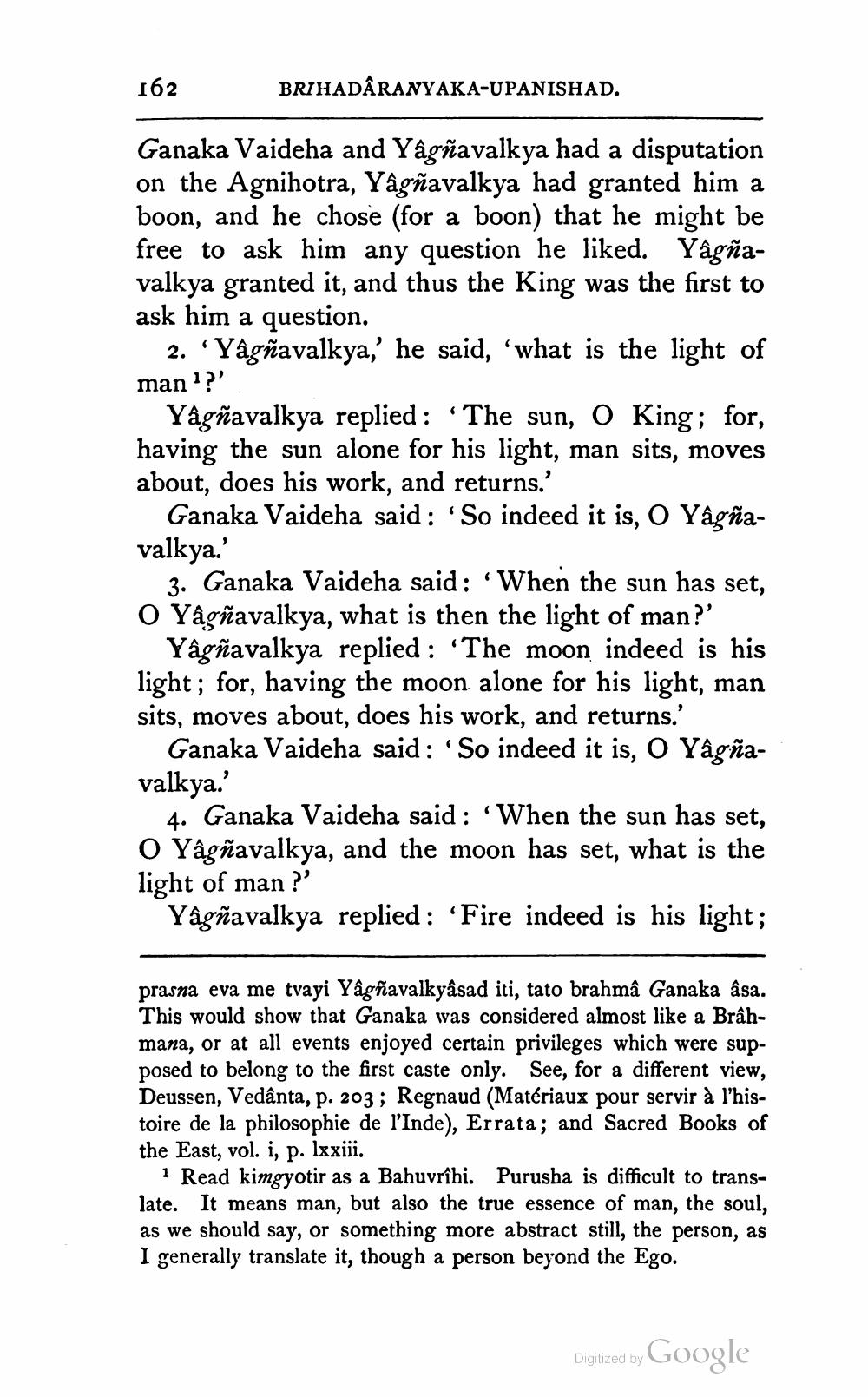________________
162
BRIHADARANYAKA-UPANISHAD.
Ganaka Vaideha and Yâgñavalkya had a disputation on the Agnihotra, Yagñavalkya had granted him a boon, and he chose (for a boon) that he might be free to ask him any question he liked. Yâgñavalkya granted it, and thus the King was the first to ask him a question.
2. 'Yâgñavalkya,' he said, “what is the light of man '?'
Yagñavalkya replied: "The sun, O King; for, having the sun alone for his light, man sits, moves about, does his work, and returns.'
Ganaka Vaideha said: 'So indeed it is, O Yagñavalkya.'
3. Ganaka Vaideha said: "When the sun has set, O Yagñavalkya, what is then the light of man?'
Yagñavalkya replied: "The moon indeed is his light; for, having the moon alone for his light, man sits, moves about, does his work, and returns.'
Ganaka Vaideha said: 'So indeed it is, O Yagñavalkya.'
4. Ganaka Vaideha said: "When the sun has set, O Yâgñavalkya, and the moon has set, what is the light of man?'
Yâgñavalkya replied: 'Fire indeed is his light;
prasna eva me tvayi Yâgñavalkyâsad iti, tato brahmâ Ganaka ása. This would show that Ganaka was considered almost like a Brâhmana, or at all events enjoyed certain privileges which were supposed to belong to the first caste only. See, for a different view, Deussen, Vedanta, p. 203 ; Regnaud (Matériaux pour servir à l'histoire de la philosophie de l'Inde), Errata; and Sacred Books of the East, vol. i, p. lxxiii.
1 Read kimgyotir as a Bahuvrihi. Purusha is difficult to translate. It means man, but also the true essence of man, the soul, as we should say, or something more abstract still, the person, as I generally translate it, though a person beyond the Ego.
Digitized by Google




